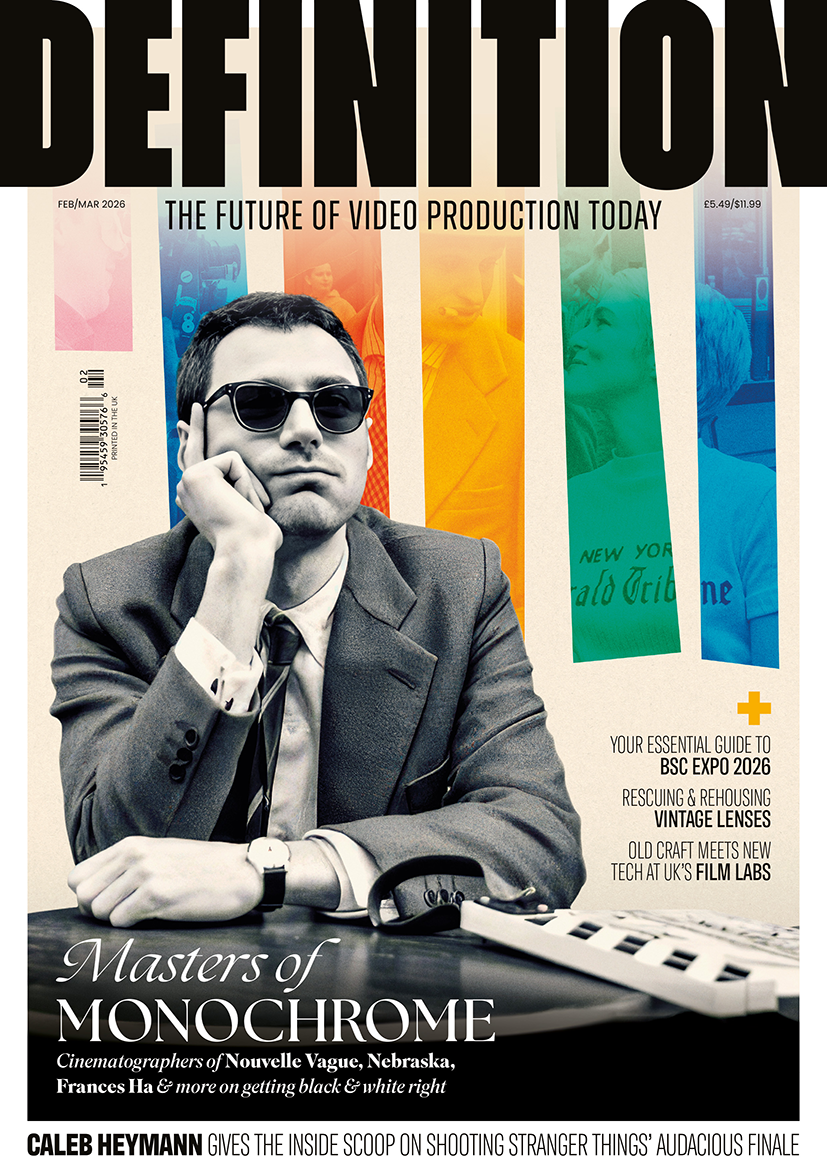
AI & the craft: Film festivals
Posted on Aug 13, 2025 by Admin
In our third edition of a regular series, we explore how film festivals are handling AI as the industry struggles to adopt a standard
Words Katie Kasperson
Before it won three Academy Awards in 2025, Brady Corbet’s ambitious The Brutalist took home the Silver Lion award for best directing at last year’s Venice International Film Festival. The A24 epic also played at Toronto, New York, Valladolid and Austin during a circuit run, yet, in the Oscars lead-up, it was revealed that the film used AI to fine-tune its actors’ Hungarian accents.
While its use of AI didn’t disqualify The Brutalist from receiving accolades, it did change how audiences and critics viewed it. It also invited important questions about AI and awards: should filmmakers be required to disclose the use of any AI, generative or otherwise? Should films made with AI – whether minimally or entirely – be barred from awards consideration? Should this extend to film festivals too?
Festival programmers are playing a significant role as the industry navigates these uncharted waters. There is a noticeable lack of any standardisation, causing each festival to take matters into their own hands – and leading to a myriad of approaches to AI. From embracing films made almost entirely using AI (such as What’s Next?, which premiered at the Berlinale) to banning the technology altogether, we lay out the key takeaways from a select batch of festival guidelines.
Embrace or resist?
Certain festivals are more open to AI than others. Berlin, for instance, created a separate category for AI-directed films, and New York ‘would not rule it out’, according to a spokesperson from NYFF. “Films have been submitted – and even selected – that engage with or incorporate AI in various ways, though it’s not a separate category in our programming,” they continue. “The technology is evolving rapidly, and the festival is open to work that explores or innovates with these new tools.”
There are even some festivals wholly dedicated to AI, such as Runway’s AI Film Festival. “Our festival is a celebration of the art and artists embracing new and emerging AI tools for filmmaking,” begins Jamie Umpherson, Runway’s head of studios. “The screenings provide a look at a new creative era – one where AI can augment and expand human creativity and help storytellers bring their ideas to life.” Out of this year’s ten finalists, Umpherson explains, all used generative AI ‘to tell stories that otherwise would not have been told’.
Some would argue, though, that a story told by AI is, in a sense, soulless; it lacks a human voice and therefore isn’t a work of art, but rather a piece of content. At this year’s Annecy International Animation Film Festival, a group of protesters publicly spoke out against generative AI, claiming the technology is ‘a copying machine that is flawed, destructive and expensive to run’.
Animators, voice actors and documentary filmmakers are especially concerned about AI’s impact on their respective crafts. Workers’ unions all around the world – such as ABRACA in Belgium, AWI in Ireland and the Animation Guild in the US – have declared a state of emergency over AI and called for action from lawmakers.
Joanna Croston, director of the Mountain Culture category at Banff Centre Mountain Film and Book Festival, expresses her worry over AI’s usage in the documentary space. “AI use in the outdoor and adventure sports realm is concerning, particularly in climbing or adventure ‘firsts’, where AI could be used to generate false evidence of these accomplishments.” With AI becoming increasingly more difficult to detect, film programmers now face a growing problem – the risk of misinformation spreading unchecked.
The best policy
Across the board, it seems most festivals are prioritising transparency, relying on filmmakers to respond honestly when asked about AI. “We do request that filmmakers disclose the use of AI in their films when submitting,” shares a spokesperson from Leeds International Film Festival; Banff, Cambridge and Sundance all say the same.
More specifically, many fests are asking filmmakers to break down this use, declaring whether it’s in the pre-production and/or post-production pipeline. “If you are using generative AI as part of your artistic approach, how do you plan to disclose it to your audience?” asks Sundance’s submission form for non-fiction films. “If you don’t plan to disclose the use of AI, please explain why,” the form continues.
Cambridge Film Festival has acknowledged that self-reporting is often a flawed system, but it’s currently the best one out there. That said, CFF won’t hesitate to disqualify films that are found to have breached copyright laws or failed to secure artists’ consent. “We are particularly concerned by the ethical implications of large-scale AI models being trained on artistic works without the consent or compensation of their creators,” writes the festival. “While this may not always breach legal boundaries, it raises serious questions about fairness, artistic ownership and the respect for creative labour.”
Broadly, film festivals appear open to judgement-free discussions about AI, as well as continuing to follow how the technology – and the industry’s response – evolves. “We are talking to colleagues at other festivals about their policies in the hope of moving towards an industry standard,” affirms Leeds. “We appreciate AI is complex and ever-changing.”
Learn about more ways that creators can protect themselves and their work in the age of AI.
This story appears in the July/August 2025 issue of Definition









